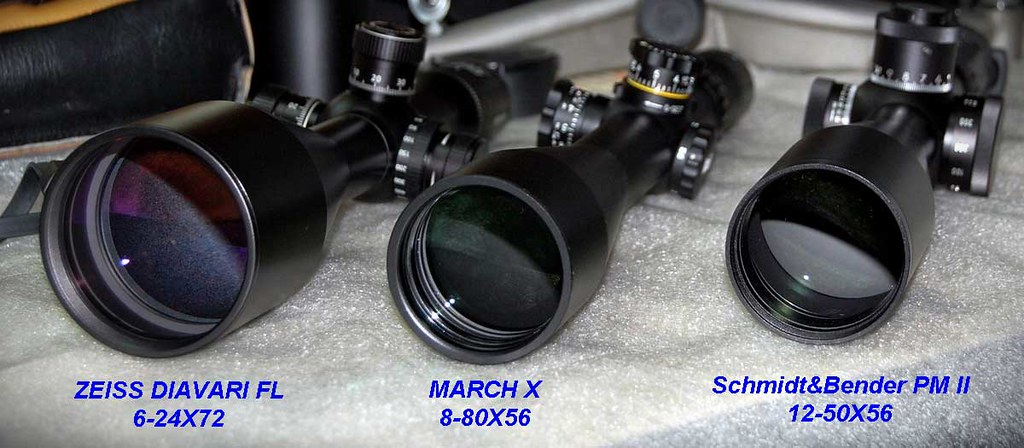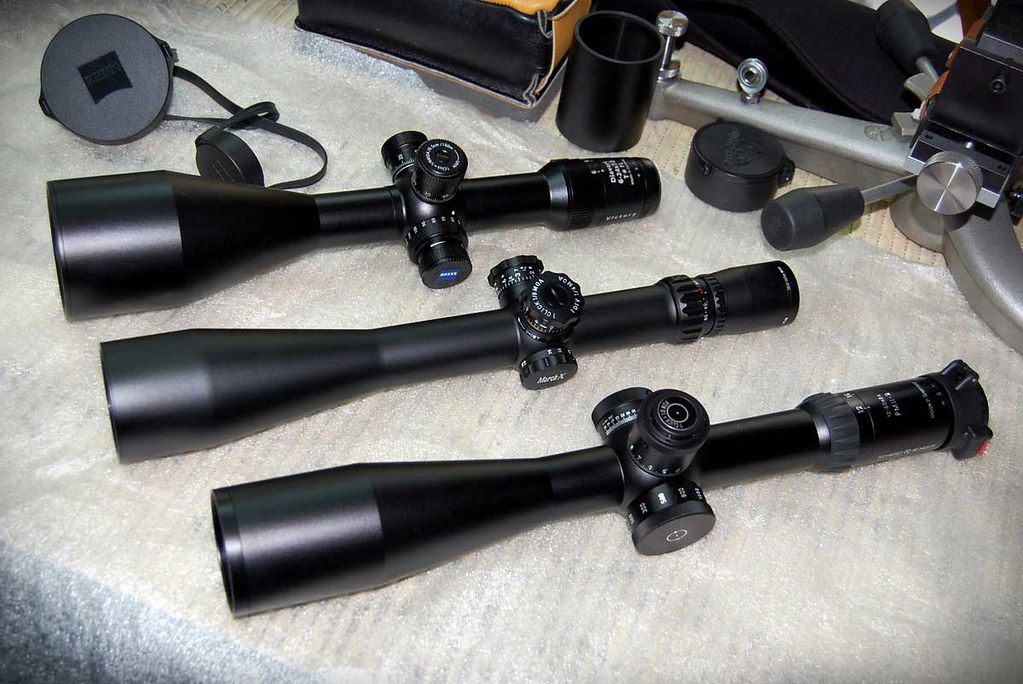Re: Who Makes the best Glass???
<div class="ubbcode-block"><div class="ubbcode-header">Originally Posted By: AXEMAN</div><div class="ubbcode-body">look at the most expensive cameras and the lenses they use. hasseblad cameras use zeiss glass and thats the top of the line in the camera world. its been to and still is on the moon, if you believe that whole moon landing thing. leica uses zeiss too. swarovski has made the finest crystal for EVER. you would have to think that scope makers that use glass from these sources would be some of the highest quality scopes around. i would think nikon would have decent optics if their line of nikkor lenses is any example. i have looked thru alot of nikon glass but never in a scope. and i have not looked thru any high dollar scopes, but its tough to beat the glass thats been refined to the highest level of perfection and been doing it for the longest time id imagine. can anyone verify that? the japanese stuff is top quality too, they make some of the finest medical optics for cameras and microscopes and at those magnifications, purity is a must
oh yeah, that has nothin to do with who makes the best scopes. well maybe a little </div></div>
Axeman,
I think this is an example of a very common misconception about "glass". Everybody seems to think that the quality of "glass" is definded mainly by the raw material being used, which is only a very small part of the whole story. It's like defining the quality of a rifle mainly by referring to the maker of the barstock steel that is being used to make the barrel. I think in this case it is more obvious how small of a role the raw material plays for the outcome, the finished rifle. Of course good steel is a prerequisite for making a great rifle, but it is far from sufficient to have great steel barstock in order to make a great rifle.
Optical glass of various quality is a material that is basically available to anyone willing to pay market prices for it, and there are companies that will manufacture lenses from it to spec. This is where the routes of top notch and mediocre optics part. Image quality will depend on the right choice of glass types and the optical formula, meaning the shapes and positioning of the lenses. A scope made with the very best raw glass available, with lenses poloished to the highest standards and with the very best coatings ever developed will still produce a crappy image if the optical engineer did a poor job.
Of course, glass types do play a role, but it's not the case that fancy glass types are only available to few manufacturers, they are simply only used in high-end scopes that tend to be designed by skilled people simply because they are expensive (as raw material hand because they may be harder to work with during manufacturing) and it wouldn't make sense to create a sub-par design using expensive ingredients.
Of course, the proper grinding and polishing of the lenses and their accurate positioning relative to each other in the finished scope also play a major role when it comes to image quality.
If Leica uses "Zeiss glass", it's Schott raw material at best, and that doesn't mean the finished optics have anything in common with Zeiss optics, at least no more than ford and Chevy have in common if both get their steel from the same steel mill.
Of course companies who have been producing optics for a long time tend to accumulate a lot of knowledge about optics design, but that doesn't mean those companies have any exclusive knowledge that will put them in front of others by default. It really depends on the people doing the design, like it depends on a skilled gunsmith to make the most of great components.
Optical engineering is a science, maybe bordering on an art form because it requires so much skill and experience. It is not, however, black magic that requires fairy dust from a source only available to a select few like many companies would like to make you believe in their ads.
Our most valuable resource when it comes to optics design is not the glass types that can be bought on the free market (we do use the equivalent of what Zeiss calls "FL" glass in our scopes by the way, we have just failed to make a big buzz around that fact so far), it's the team of optics designers we cooperate with, including the guy who was head of optical and mechanical design for all binoculars, spotting scopes, cameras and camera lenses for 10 years at Leica Camera. That kind of experience cannot be replaced with the use of any kind of fancy "glass" as raw material.
Sorry about the rambling, but it's been itching every time I've been reading a reference to "glass" here.







